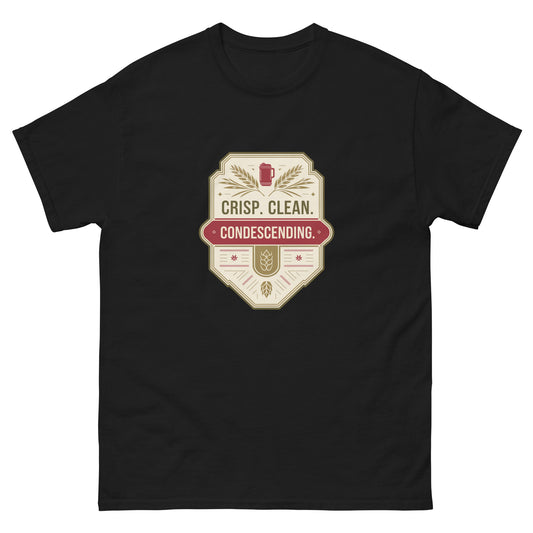Common Homebrewing Mistakes (And How to Avoid Them)
Share
Disclaimer: This blog post contains affiliate links. If you click on these links and make a purchase, we may earn a small commission at no extra cost to you. We also have our in-store range on products. However as a small rural hardware store we don't have the space to stock everything. So this helps support our customers and allows us to continue recommending products and tips that help you along your homebrewing journey. Thank you for supporting us! You can read full disclosures here
There’s just something magical about homebrewing, isn’t there? The idea of crafting your very own beer in the comfort of your home, watching it bubble and transform, then finally cracking open a bottle of something you made with your own hands—it’s an addictive hobby. But here’s the thing: homebrewing is every bit as much an art as it is a science. And while it’s endlessly rewarding, it also comes with its fair share of pitfalls. The good news? Most of them are easy to avoid! Let’s chat about some of the most common homebrewing mistakes and how you can steer clear of them.
1. Skipping the Sanitisation
If there’s one golden rule of homebrewing, it’s this: cleanliness is king. If you neglect proper cleaning and sanitisation, you might wind up with a batch of beer that tastes... well, funky—and not in a good way. Bacteria and wild yeast are the ultimate party crashers, and they’ll ruin your carefully crafted brew faster than you can say ‘contaminated.’
How to avoid it? Be meticulous about sanitising everything that comes into contact with your beer: fermenters, spoons, tubing, bottles—everything. Products like no-rinse sanitisers are your best friend here. Make it part of your ritual, and you’ll thank yourself later.
You can pick up no rinse sanitiser sachets at H
2. Not Paying Attention to Temperature
Temperature might seem like a small detail, but trust me, it’s not. If your wort (aka unfermented beer) gets too hot when pitching the yeast (adding yeast to the brew), the yeast can get stressed or even die. This can lead to unfinished fermentation or off-flavors. On the flip side, pitching yeast into wort that’s too cold can stall fermentation completely.
The sweet spot? Most ale yeasts prefer a temperature range of 18–22°C. Invest in a reliable thermometer and keep a close eye. Fermentation too hot or cold during the process can also impact flavors, so consider controlling the environmental temperature where you store your brew. Pro tip: a cheap ice chest can do wonders as a DIY fermentation chamber!
3. Rushing the Process
Let’s get real for a second: patience is a challenge. Once your wort has been transformed into delicious nectar by those hard-working yeast cells, it’s incredibly tempting to crack it open and have a taste immediately. But beer needs time. Rushing the fermentation or bottling process can leave you with beer that’s too sweet, overly carbonated, or just plain unfinished.
So what’s my advice? Respect the timeline. Most homebrewed beers should ferment for at least two weeks before bottling. After bottling, give them another two weeks to carbonate properly. Longer if possible for heavier styles like stouts or porters. Trust the process—it’s worth the wait!
4. Forgetting to Record Your Recipe
Alright, picture this: you nailed it. You whipped up a batch of beer that’s so good it had your friends asking where you bought it. And then—uh oh—you realize you didn’t write anything down. No record of what you did, no way to recreate the magic. It’s heartbreaking!
Don’t make this mistake. Keep a notebook or use an app to jot down every detail: the grain bill, hop additions, fermentation temperatures, even the water profile if you’re feeling advanced. Track it all. That way, if you strike gold, you can create it again—or tweak it to make it even better!
5. Underestimating the Importance of Water
Water makes up roughly 90% of your beer, yet many beginner brewers barely give it a second thought. The truth? Water quality has a HUGE impact on the final taste of your beer. If your tap water has strong chlorine or mineral flavors, they’re going to show up in your brew.
To avoid this, use filtered water or recipes designed to work with your local water profile. Some brewers even experiment with minerals to adjust water chemistry. You don’t need to go that far unless you’re a perfectionist already, but starting with clean, neutral water will take your beer from good to great.
6. Overcarbonating the Beer
You know the meme-worthy moment: opening a bottle and being greeted by a geyser of foam spraying everywhere. It’s funny in hindsight but frustrating in the moment. Overcarbonation happens when too much sugar is added during bottling or when the beer is bottled too early before fermentation finishes.
The fix? Always measure your priming sugar (usually around 5-6 grams per liter of beer for standard carbonation). And use a hydrometer to confirm fermentation is complete before bottling. A few extra days in the fermenter won’t hurt, but jumping the gun will.
7. Ignoring the Joy of Experimentation
Okay, this one’s not so much a mistake as a missed opportunity. Some homebrewers get so focused on following recipes to the letter that they forget the absolute best part of brewing: making it your own. Whether it’s tossing in fresh fruit, experimenting with unusual hops, or barrel-aging a batch (if you’re brave), don’t be afraid to try something new.
Sure, it might flop, but you’ll learn so much from the process. And who knows? You might just end up with a mind-blowing brew that’s 100% unique.
Final Thoughts
Homebrewing is a journey, and like any journey, there are bound to be a few stumbles along the way. But hey, memorable stories often come from the mistakes, right? The key is to learn, improve, and most importantly, enjoy the process. Take these tips to heart, and you’ll be well on your way to creating beers you’ll be proud to share—or hog all to yourself. No judgment here!
If you want to get started we recommend The Coopers DIY Beer Making Kit
Happy brewing, friends! And remember, every great brewer was once just a beginner armed with a passion and a fermenting bucket.
Cheers
Candeece









